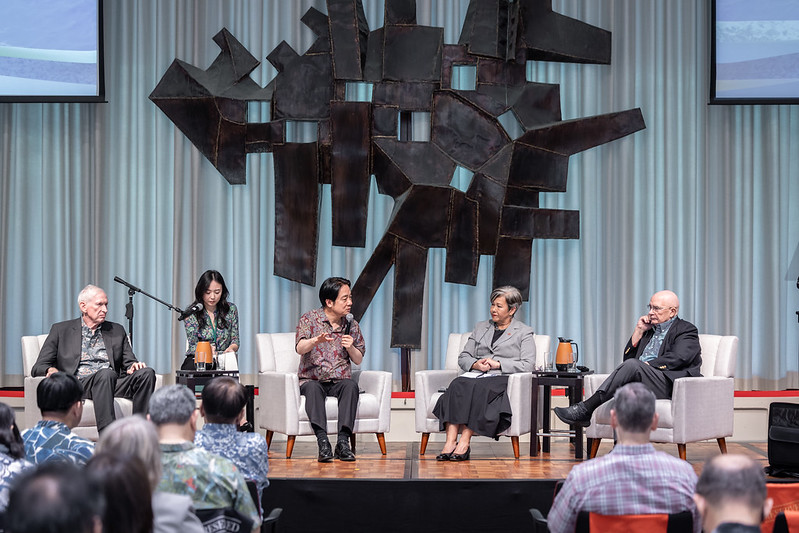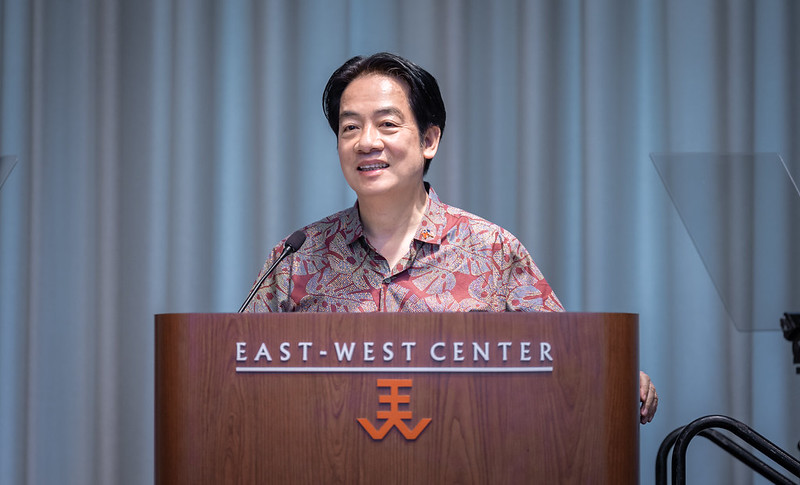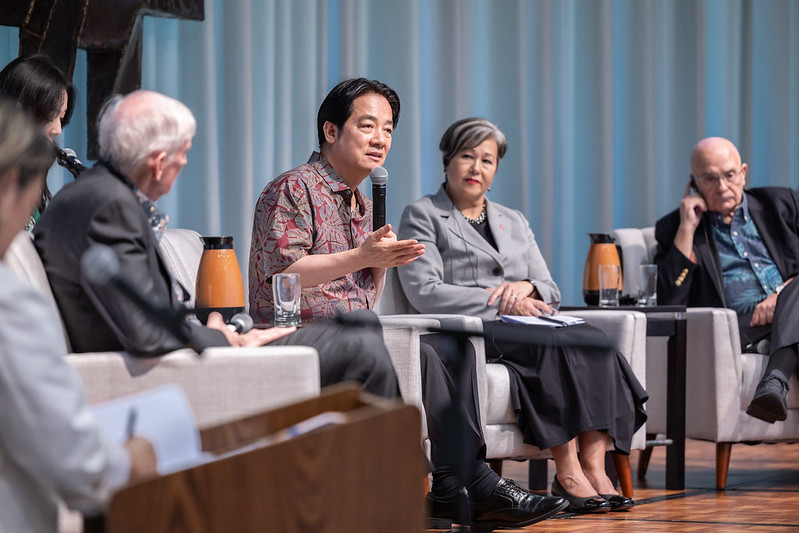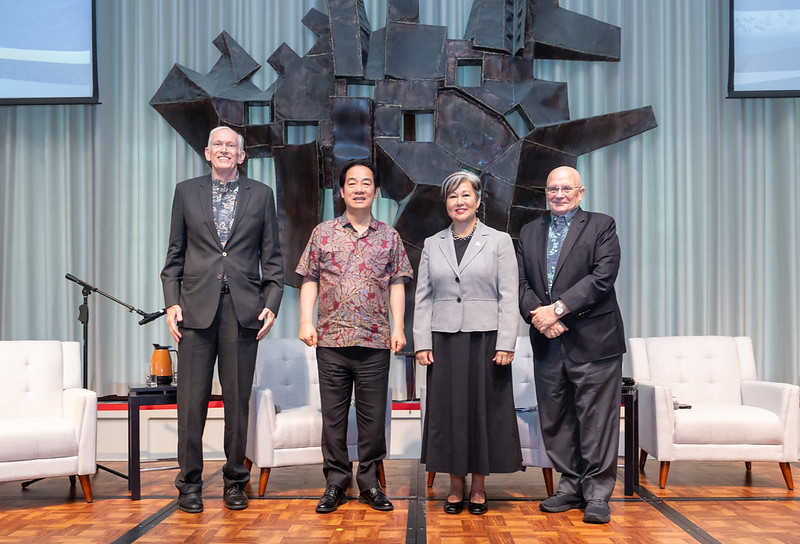News & activities
 News releases
News releases
While transiting in Hawaii before state visits to the Republic of the Marshall Islands, Tuvalu, and the Republic of Palau, President Lai Ching-te held a discussion with scholars and experts at the invitation of think tank the East-West Center on the afternoon of December 1 local time (morning of December 2 Taipei time).
In remarks during a closed-door discussion, President Lai thanked East-West Center President Suzanne Vares-Lum for arranging the discussion, and expressed gratitude to the center for long promoting mutual understanding between the United States and the people of Asia and the Pacific. He also thanked the center for partnering with Taiwan on the Pacific Islands Leadership Program, which has nurtured over 200 future leaders from across the Pacific. The president said that programs like this highlight our shared dedication to fostering peace, stability, and prosperity in the Indo-Pacific.
President Lai also thanked the US for its longstanding support under the Taiwan Relations Act and the Six Assurances, which continuously strengthens the Taiwan-US partnership. He said that the first agreement under the Taiwan-U.S. Initiative on 21st-Century Trade opens new opportunities for cooperation while addressing challenges such as economic coercion, supply chain resilience, and double taxation.
In the closed-door discussion, President Lai delivered remarks in English titled “A Future of Shared Prosperity: Taiwan as a Partner for Peace and Prosperity in the Indo-Pacific Region,” in which he emphasized the following three actions Taiwan is taking in regard to the Indo-Pacific and the world at large:
First, Taiwan is implementing the Four Pillars of Peace action plan, which involves strengthening self-defense, enhancing economic security, deepening democratic ties, and engaging in dialogue. Taiwan is committed to strengthening national defense and building up whole-of-society defense resilience, with the Whole-of-Society Defense Resilience Committee already having been established at the Office of the President. Taiwan-US cooperation in recent years has demonstrated Taiwan’s commitment to its security, as well as the shared commitment of Taiwan and the US to peace in the Indo-Pacific region.
Second, Taiwan actively contributes to global supply chains, especially in the semiconductor and other high-tech industries. The Taiwan-US partnership not only strengthens these industries, but also shows Taiwan’s strategic importance as a trustworthy, reliable partner. Taiwan also actively cooperates with like-minded nations, fully demonstrating how we leverage our expertise to contribute to global development.
Third, Taiwan is actively committed to ensuring peace, stability, and prosperity in the Taiwan Strait and the Indo-Pacific region. Taiwan continues to fulfill its commitments through transparent collaborations in public health, agriculture, fishery, livestock, and climate transformation, advancing close and friendly relations with our Pacific allies to achieve the three goals of smart sustainability, democratic sustainability, and diplomatic sustainability. In addition, Taiwan will continue to strengthen self-defense capabilities and work closely with like-minded nations to uphold our shared belief in peace through strength, defending the universal values of freedom, democracy, and the rule of law.
Attendees also included former East-West Center President Richard R. Vuylsteke and former American Institute in Taiwan (AIT) Chairman James Moriarty. Among those who attended the afternoon’s itinerary was AIT Managing Director Ingrid Larson.












